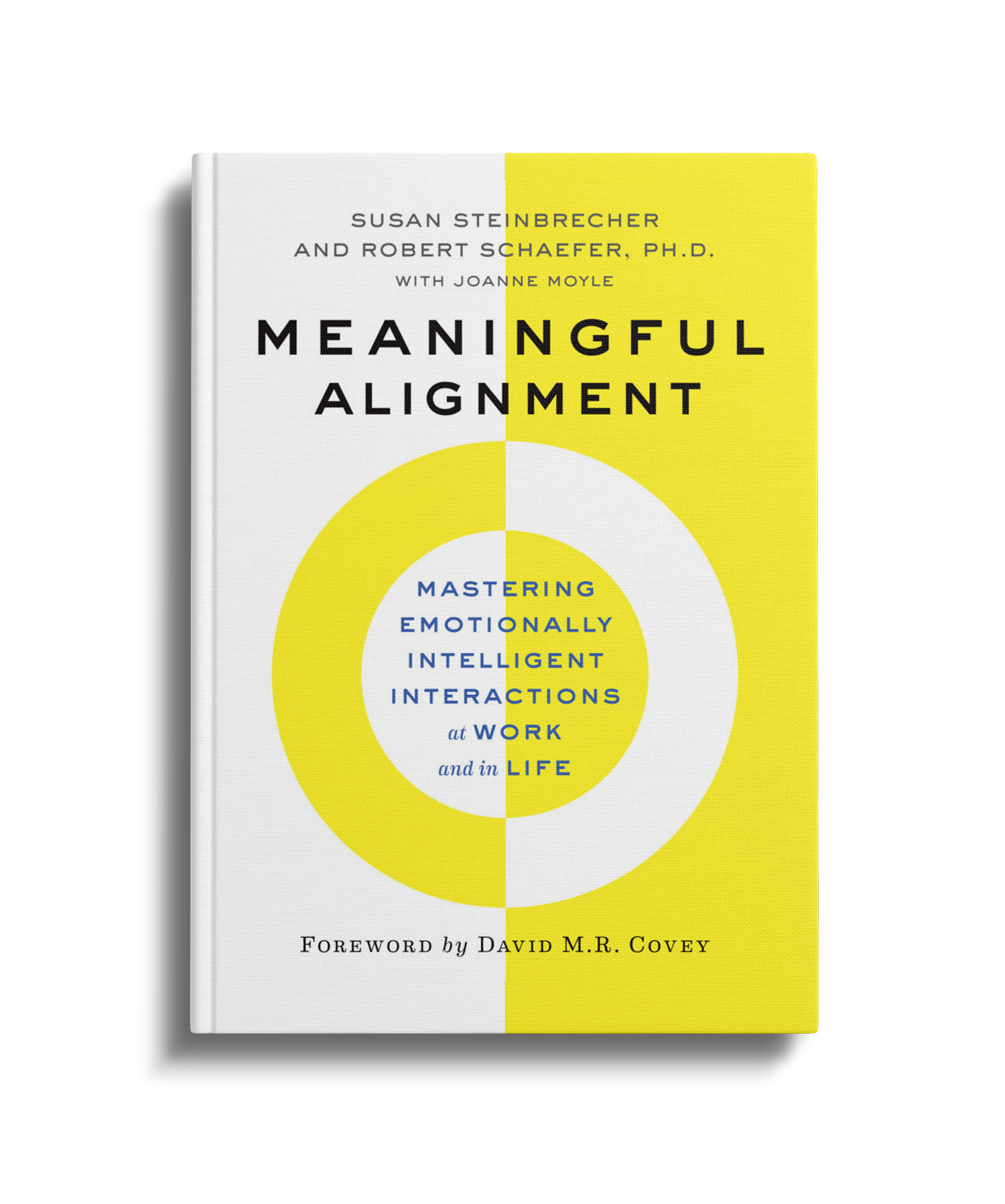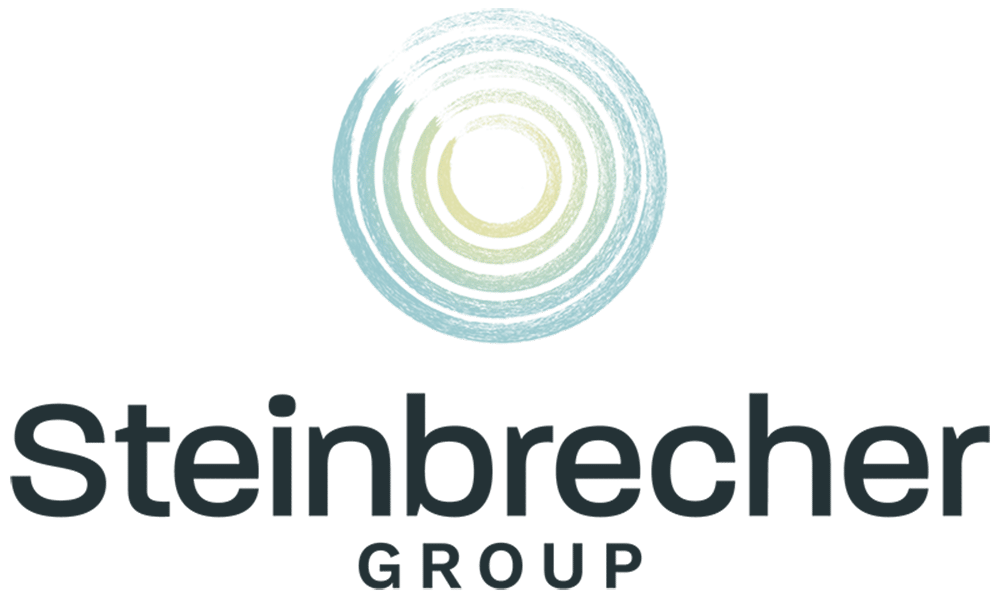Meaningful Alignment
Manage emotions. Resolve conflict. Improve relationships.
Let’s face it. Many of us are not the best communicators when under pressure. The ability to communicate effectively and authentically has become a lost art. A lack of emotional self-management during high-stakes conversations can lead to damaged relationships and career setbacks.
The inability to effectively handle high-stakes conversations costs organizations an enormous amount of time and money. By our basic nature, most people have difficulty handling emotionally-charged conversations. Our capacity to manage emotions, resolve conflict, and create meaningful alignment with others is not part of our inner essential nature— it must be learned.
A lack of alignment creates problems in the workplace, such as:
- Avoidant and reactive management culture
- Team members not receiving crucial, timely feedback
- Teams and individuals not being held accountable
- Fewer innovative, creative, and collaborative behaviors
- Teams not equipped to resolve issues and solve problems (low autonomy)
It’s not about who wins or loses; it is about coming to alignment with one another. The Meaningful Alignment program was created to help individuals and teams learn how to communicate extraordinarily well — and successfully build high levels of trust. Our research is focused on a concept we call the “Inside Game.” The inside game refers to how our beliefs, perceptions, and social behaviors are formed from unique emotional response patterns and coping mechanisms.
Meaningful Alignment teaches leaders how to model equanimity and be a source of reassurance and confidence – particularly during tumultuous times. Our program offers a unique set of tools and assessments that help you express emotion in a way that will inspire team members through empathy, respect, compassion, and perhaps most importantly, how to offer timely, candid, and courageous feedback.
The Program
The secret to all successful relationships is gaining alignment with others, with emotional composure and resilience. Achieving Meaningful Alignment is a program committed to helping people engage one another, actively and skillfully.

Just a few of the program highlights:
- Learn which dialogue styles we use with others, particularly when the stakes are high and disagreements are tinged with emotion.
- Discover vital techniques to help manage your own emotions, and those of others.
- Explore ways to build greater emotional resiliency.
- Learn and practice the six steps and emotional management techniques of Meaningful Alignment.
Armed with this insight into our unique behavioral tendencies and underlying motivational drives, we are then able to regulate our emotions and address others more mindfully.
By our basic nature, people lack the confidence, competence, and comfort to interact when viewpoints are not aligned.
Meaningful Alignment refers to any conversation involving two or more people where alignment and deep understanding are vital to a successful outcome. These discussions happen in all spheres of our life: work, home, school…even in social media. We struggle to be in alignment for a number of reasons—culture, language, generation, role differences and personal life history all come into play. The impact of poor communication is immense. According to one study, conflicts between employees cause over 350 billion dollars of lost productivity each year. Over time, sustained and unresolved conflicts cause many stress-related illnesses, which not only impact our performance at work, but our long-term mental and physical well-being.
So, what’s the underlying program, and more importantly, what’s the solution?
Although there are many self-improvement books and courses that teach techniques for communicating effectively, a technique-based approach isn’t enough. When it comes to improving our ability to communicate with others, we must keep in mind that no two people are alike. The path to improving our ability will be different for each person. Achieving a successful outcome for all parties involved begins with understanding ourselves and the “inside game” of our mind. This deeper self-knowledge is achieved through Steinbrecher’s Interpersonal Dialogue Profile™ (IDP) assessment. We experience the spectrum of our feelings at different levels of intensity, much like a volume dial on a radio or the temperature reading on a thermometer. Meaningful Alignment provides a means to develop emotional intelligence, communication acumen, ability to resolve conflicts, and perhaps most importantly to receive more satisfaction and joy from the social dimension of life.

The Book
What’s worse than having a high-stakes conversation? Avoiding one.
By our basic nature, many of us have difficulty handling emotionally charged conversations. Our capacity to manage emotions, handle conflict, and communicate authentically is not innate—it must be learned. Meaningful Alignment will provide you with well-defined, practical, and effective tools to manage your emotions and deftly facilitate the emotions of others during a tough conversation. Diminish stress with the skills outlined in this book, and experience more satisfaction from your relationships, at home and at work.
About the story…
Carl is an overworked, stressed-out executive who feels he is losing control in many areas of his life. At work, his productivity deteriorates, and he clashes with a peer. His home situation is not much better. He quarrels with his wife, and his son has stopped communicating with him. Carl feels as though his life is on the verge of imploding as multiple difficulties bring him to the brink of disaster.
With the help of a coach and a wise mentor, Carl learns how to build emotional resilience and facilitate the emotions of others—without losing control. Using the Meaningful Alignment program methods, Carl learns to manage his emotions and skillfully navigate high-stakes conversations with composure and resilience.

